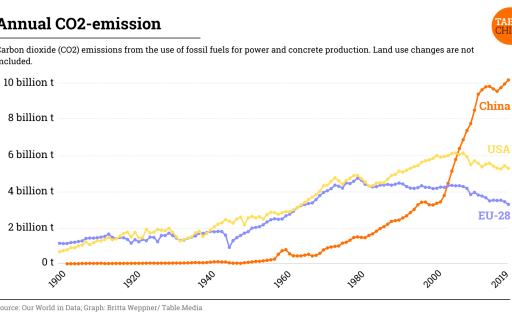


The decarbonization of energy-intensive industries such as the steel sector is crucial for achieving the global climate targets. However, the changeover is complicated and expensive. How it can still be achieved is one of the central questions at COP26.
By Timo Landenberger

On an international level, China is regarded as a brake on climate protection. Yet the goal of reducing its emissions to "net-zero" within just under 40 years presents the country with massive economic and social challenges.
By Nico Beckert

The European Union and the US want to cooperate on decarbonizing the steel and aluminum industry. The agreement offers the chance for a better coordination of climate policies, says Susanne Dröge of the German Stiftung Wissenschaft und Politik. However, the exclusion of China could prove counterproductive.
By Redaktion Table




France is relying on nuclear power to achieve its climate targets. President Macron wants to invest in small nuclear power plants in particular in order to drive forward the energy transition. To finance this, nuclear energy must be classified as sustainable in the EU taxonomy. But the new technology also harbors many problems.
By Charlotte Wirth


Cities are responsible for a large share of greenhouse gases and at the same time play an important role in climate protection. Mike Bloomberg, Special Representative for Climate Action of the UN Secretary-General and Co-Chair of the Global Covenant of Mayors for Climate Energy, and Commission Vice-President Frans Timmermans call on governments to provide more support to mayors.
By Redaktion Table